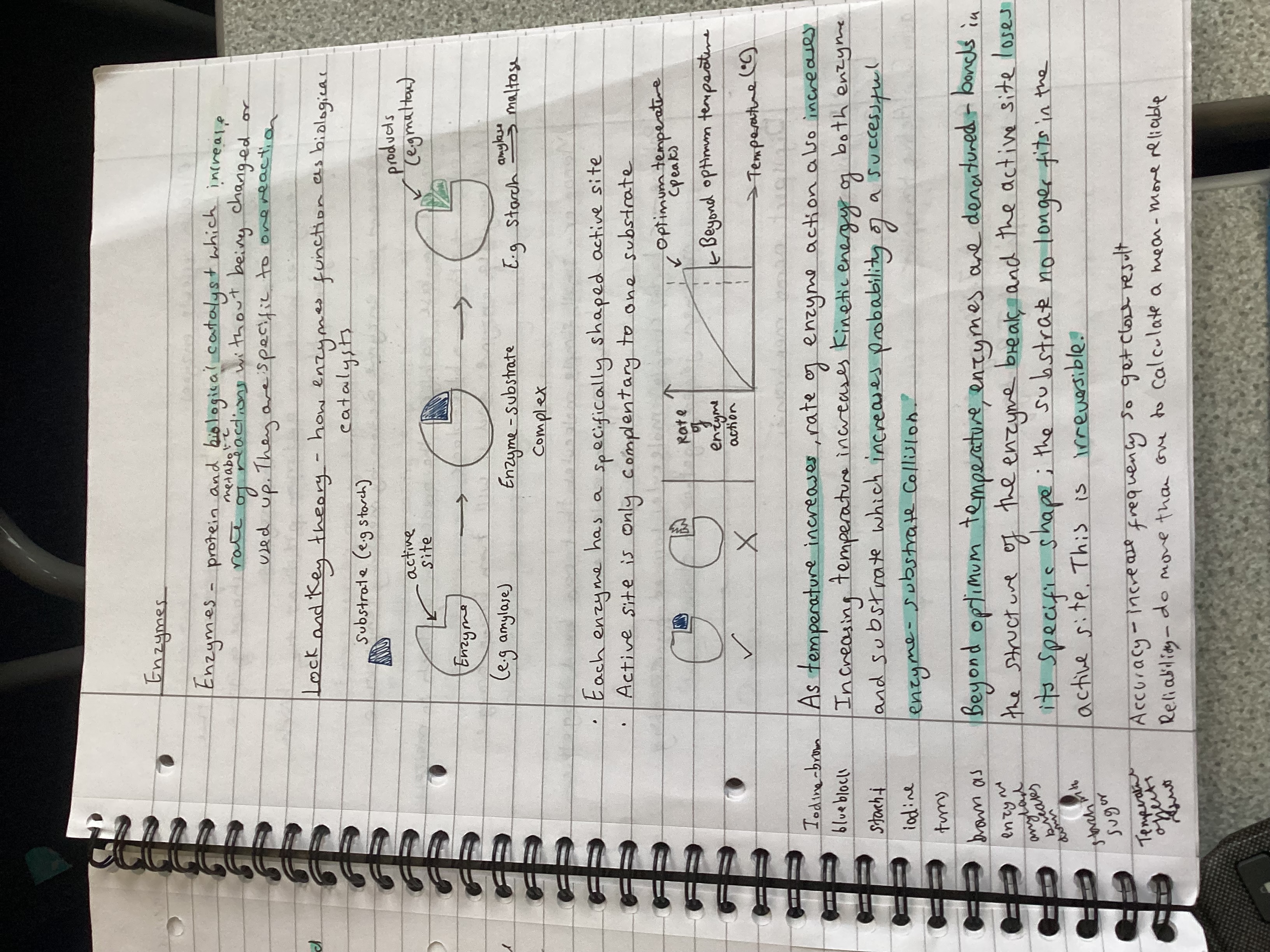What are enzymes and how do they function as biological catalysts, particularly in relation to temperature?

Understand the Problem
The question involves understanding the function of enzymes in biological processes, particularly how temperature affects their action and structure. It outlines the 'Lock and Key' theory and the impact of temperature on enzyme activity.
Answer
Enzymes speed reactions and are affected by temperature; higher temps increase activity until denaturation.
Enzymes are proteins acting as biological catalysts that increase the rate of reactions without being changed. They lower activation energy, and temperature affects their function. An increase in temperature raises reaction rates, but beyond an optimal temperature, enzymes can denature, losing their function.
Answer for screen readers
Enzymes are proteins acting as biological catalysts that increase the rate of reactions without being changed. They lower activation energy, and temperature affects their function. An increase in temperature raises reaction rates, but beyond an optimal temperature, enzymes can denature, losing their function.
More Information
The lock and key theory describes how enzymes and substrates interact, ensuring specificity. Enzymes are most efficient at an optimal temperature; beyond this, denaturation can permanently inactivate them.
Tips
A common mistake is assuming enzymes can work at any temperature. Understanding the optimal range and denaturation risks is key.
Sources
- Enzymes review (article) | Khan Academy - khanacademy.org
- Effect of Temperature on Enzymatic Reaction - Creative Enzymes - creative-enzymes.com
- Enzymes - Biological Catalysts - Chemistry LibreTexts - chem.libretexts.org
AI-generated content may contain errors. Please verify critical information